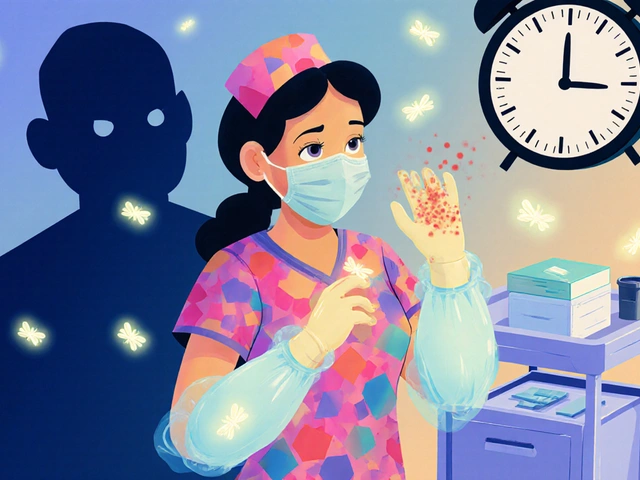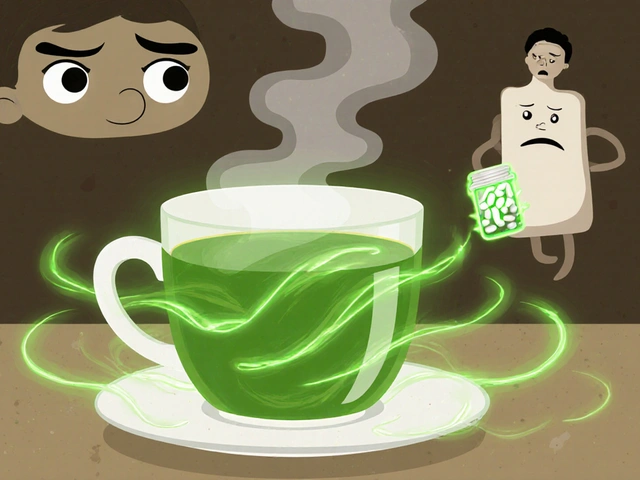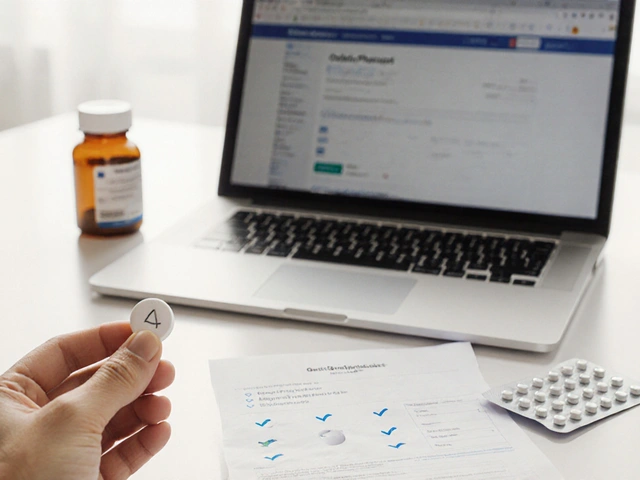Understanding Coronary Artery Disease with Emphasis on the Role of Social Support

Coronary Artery Disease or CAD is a condition that affects millions of people around the globe. It happens when the arteries that supply blood to the heart muscle become narrowed or blocked, leading to various complications, including heart attacks.
The importance of social support can't be overstated in managing this condition. Not only does a strong support system improve morale, but it can also directly impact physical health and recovery.
Friends, family, and support groups offer more than emotional comfort. They encourage healthy behaviors, remind patients to adhere to treatments, and motivate them to stay active. These support systems become lifelines in managing CAD effectively.
- What is Coronary Artery Disease?
- Symptoms and Risk Factors
- The Impact of Social Support on Health
- Scientific Evidence Supporting Social Support
- Ways to Build and Maintain Social Connections
- Tips for Patients and Caregivers
What is Coronary Artery Disease?
Coronary Artery Disease (CAD) is a condition characterized by the narrowing or blockage of the coronary arteries, which supply oxygen-rich blood to the heart muscle. This often results from the buildup of plaque, a combination of fatty deposits, cholesterol, and other substances. When these pathways are restricted, the heart muscle cannot receive sufficient oxygen, leading to symptoms like chest pain, shortness of breath, and fatigue.
CAD is the most common type of heart disease and a leading cause of death worldwide. Every year, millions of individuals are diagnosed with this condition, which underscores the importance of understanding its mechanism and potential impact on daily life. Risk factors for CAD include high blood pressure, high cholesterol, diabetes, obesity, smoking, and a sedentary lifestyle. Additionally, genetic predisposition can also play a significant role, making it crucial to consider family history when assessing risk.
The symptoms of CAD can vary widely among individuals. Some may experience a sudden, sharp pain in the chest known as angina, often triggered by physical exertion or stress. Others might have more subtle symptoms, such as discomfort in the arms, neck, jaw, or back. In some cases, individuals may not exhibit any symptoms until they suffer from a heart attack or another serious heart event.
Diagnosing CAD usually involves a combination of medical history assessment, physical examinations, and various diagnostic tests. These can include electrocardiograms (ECG), stress tests, echocardiograms, and coronary angiography. Each of these tests provides different insights into the heart's function and the condition of the coronary arteries, helping doctors determine the most appropriate treatment approach.
Treating CAD often involves lifestyle changes, medications, and in some cases, surgical procedures. Lifestyle changes might include adopting a healthier diet, increasing physical activity, quitting smoking, and managing stress. Medications can help manage symptoms and reduce the risk of further complications, while procedures like angioplasty and coronary artery bypass grafting (CABG) can physically restore proper blood flow to the heart muscle.
"Coronary Artery Disease doesn't just affect the heart—it impacts the whole person. Understanding the risk factors and treatment options is key to managing this potentially life-threatening condition," says Dr. Jane Smith, a leading cardiologist.
CAD is a serious condition, but with the right knowledge and support, individuals can effectively manage the disease and maintain a good quality of life. Whether you're at risk, newly diagnosed, or living with CAD, it's crucial to educate yourself about the condition and seek the support you need to navigate the journey.
Symptoms and Risk Factors
Identifying the symptoms of Coronary Artery Disease (CAD) early can be lifesaving. Many people don't realize they have this condition until they experience a significant event like a heart attack. Initial symptoms often include chest pain or discomfort, known as angina. This pain can feel like a squeezing, pressure, heaviness, or tightness in the chest. It might also radiate to the arms, neck, jaw, shoulder, or back.
Shortness of breath is another common symptom. People may notice that they can't catch their breath after simple activities that didn't previously cause this issue. Fatigue is yet another sign. Feeling unusually tired for no apparent reason, especially after exercise, could signal that the heart isn't getting enough blood. Some patients experience dizziness, nausea, or cold sweats. These symptoms are often mistaken for less serious conditions, which delays timely intervention.
Risk factors for CAD are multi-faceted. Age plays a vital role; men over 45 and women over 55 are at greater risk. Family history is also a significant factor. If a close relative has heart disease, your risk increases. Lifestyle choices notably impact CAD risk. Smoking, a diet high in saturated fats, lack of physical activity, and being overweight or obese all contribute to higher chances of developing CAD. Hypertension and high cholesterol levels are critical indicators as well. People with diabetes should be extra cautious, as high blood sugar can damage blood vessels over time.
"Coronary Artery Disease is the leading cause of death worldwide, and identifying the symptoms early is crucial for effective management," according to Dr. John Smith, a cardiologist at Heart Health Institute.
Gender also determines risk. Men are generally at higher risk of CAD at a younger age. Post-menopausal women see an increase in risk, likely due to a fall in estrogen levels. Stress and mental health are overlooked but important risk factors. Chronic stress may damage arteries as well as encourage unhealthy habits such as smoking and overeating. Regular health check-ups to monitor blood pressure, cholesterol levels, and other indicators can catch potential issues before they become severe.
Physical activity is a double-edged sword. While lack of exercise increases risk, engaging in regular physical activity strengthens the heart and improves overall cardiovascular health. High blood pressure, or hypertension, is a silent killer and a significant risk factor for CAD. Maintaining a check on blood pressure and adhering to prescribed medications can greatly reduce this risk.
Dietary choices also play a crucial role. Consuming foods high in trans fats, sodium, and sugar can elevate the risk. A diet rich in fruits, vegetables, whole grains, and lean proteins can promote heart health. Finally, excessive alcohol consumption is detrimental. Limit intake to moderate levels to manage risk better. Recognizing these symptoms and risk factors helps in taking preventive measures and seeking early treatment.

The Impact of Social Support on Health
Social support is more than just a comforting presence; it's a vital component in the management of Coronary Artery Disease. Studies have shown that individuals with strong social networks have better recovery rates, fewer complications, and increased adherence to treatment plans. This is not merely about having someone to lean on emotionally, although that is undoubtedly important, it includes practical help, encouragement to maintain healthy lifestyles, and reminders to take medications or attend medical appointments.
Research published by the American Heart Association highlights that patients with Coronary Artery Disease who have robust social support systems are 50% more likely to survive heart attacks than those without. This remarkable statistic underscores the tangible benefits of a support network. Friends and family can help alleviate stress, provide meals, assist with daily activities, and offer lifts to doctor's appointments, making the entire process of managing CAD less burdensome.
Evidence suggests that social support can reduce the levels of stress hormones, lower blood pressure, and improve heart rate variability. - American Heart Association.
What's fascinating is how social support can align with better physical health outcomes. People who are lonely or isolated often exhibit higher levels of cortisol, a stress hormone that, in excessive amounts, can wreak havoc on the cardiovascular system. Lowering stress through positive social interactions can effectively reduce these harmful levels of cortisol. It becomes a positive feedback loop: better emotional health leads to better physical health and vice versa.
Support groups also play a significant role. These gatherings, whether in-person or online, provide a platform for sharing experiences, exchanging tips, and offering mutual encouragement. Knowing that others face the same challenges can be profoundly comforting and motivating. For caregivers, these groups can also offer respite and the chance to share coping strategies.
Practical Aspects of Social Support
The practical side of social support can’t be ignored. From helping with grocery runs to just being there during tough times, loved ones act as buffers against the difficulties posed by CAD. They assist in managing day-to-day tasks that might otherwise feel overwhelming. This kind of practical support ensures that patients can focus more on their treatment and less on the daily grind.
Additionally, social support can encourage positive lifestyle changes. When friends and family adopt healthy habits, it becomes easier for the patient to follow suit. Whether it’s going for a walk together, choosing heart-healthy foods, or even quitting smoking, the influence of a supportive network can be a game-changer.
In essence, the impact of social support on health is profound and multi-faceted. Enriching our lives with strong, caring relationships doesn't just make us feel good; it can genuinely improve our health outcomes. So, if you or a loved one is battling Coronary Artery Disease, remember that fostering connections and seeking support can be as crucial as medical treatments themselves.
Scientific Evidence Supporting Social Support
It’s one thing to say social support improves health, but the scientific community has backed this up with compelling evidence. Numerous studies indicate that having a robust support network can significantly mitigate the risks associated with Coronary Artery Disease. Research shows individuals with strong social ties tend to have lower blood pressure and reduced stress levels.
A study conducted by the American Heart Association found that heart patients with strong social support were more likely to adhere to their medication regimens and engage in physical activity, two crucial elements in managing heart health. These activities directly reduce the risk factors associated with Coronary Artery Disease. Moreover, individuals surrounded by supportive family and friends experienced fewer episodes of depression and anxiety, both of which can negatively impact heart disease outcomes.
One landmark study published in the journal Psychosomatic Medicine examined 1,368 men and women with diagnosed heart conditions. The findings indicated that those with higher levels of social support had a 50% higher survival rate compared to those who reported feeling socially isolated. The researchers concluded that social support could be as effective as lifestyle modifications like diet and exercise.
“One cannot underestimate the power of social connections. Social interactions not only offer emotional well-being but also trigger physiological responses that promote overall cardiovascular health,” said Dr. Julianne Holt-Lunstad, a renowned psychologist with extensive research in the field.
Further research has shown that social support can impact biological processes. A study in the Journal of American Medical Association noted that individuals with consistent, loving relationships had lower levels of cortisol, a stress hormone. Lower cortisol levels are associated with a reduced risk of Coronary Artery Disease as chronic high cortisol can lead to high blood pressure and other cardiovascular problems.
Impact of Group Activities
Participating in group activities can also be highly beneficial. Support groups for heart patients provide a dual benefit – emotional support and practical advice. These groups often share experiences and strategies that help members manage their condition more effectively. Research published in Clinical Rehabilitation found that patients who took part in group rehabilitation programs had better recovery rates and more positive outcomes.
Additionally, group settings can make lifestyle changes more enjoyable. Engaging in group exercises or even walking clubs can provide both physical and emotional benefits. The social aspect makes it easier to maintain these healthy habits over the long term.
The Role of Healthcare Providers
Healthcare providers play a critical role in encouraging social support mechanisms. Doctors and nurses can guide patients toward resources like community groups, online forums, and therapy. Many healthcare facilities now offer integrated care approaches that include mental health services and social support systems as part of their standard protocols.
By recognizing the importance of social support, caregivers and patients can work collaboratively to create environments that promote better health outcomes. The evidence is clear: social support is more than just a comforting presence—it is a vital component of effective Coronary Artery Disease management. Fostering these connections can make all the difference in living a healthier, longer life.

Ways to Build and Maintain Social Connections
Humans are inherently social creatures, so building and maintaining social connections is vital for those with Coronary Artery Disease. In today's fast-paced world, nurturing these relationships can sometimes be challenging. Here, we'll explore practical ways to keep your social fabric strong and resilient, especially when dealing with the pressures of managing a chronic illness.
First, consider joining a support group specifically for CAD patients. These groups offer a shared space where people can discuss their experiences, share coping strategies, and provide emotional support. Such environments foster a sense of community that makes challenging health journeys more manageable. Research has shown that people with strong social networks often have better health outcomes.
Another effective way to maintain social ties is by staying connected with friends and family through regular communication. Make it a habit to call, text, or even video chat with those who are important to you. Setting up regular meetups or virtual gatherings can ensure that you never feel isolated. This consistent effort helps in maintaining emotional bonds, which can be very beneficial for mental and physical well-being.
Volunteering is another excellent opportunity to build social connections while contributing to society. Being a part of community service projects not only improves your mental health but also helps you meet new people with shared interests and values. It provides a sense of purpose and accomplishment, which can significantly boost your morale and overall outlook on life.
Engaging in group activities like exercise classes, book clubs, or hobby groups can also be highly beneficial. These activities not only break the monotony but also offer structured opportunities to meet new people and develop friendships. Participating in such activities can promote a healthy lifestyle, which is crucial for individuals with heart conditions.
Incorporating technology can also be a great tool to keep you connected. There are various apps and platforms specifically designed to help people stay in touch, whether through messaging, video calls, or social media. Technology bridges the gap, especially if geographical constraints limit face-to-face interactions.
Organizations like the American Heart Association offer various resources and programs to help individuals connect with others facing similar challenges. Their platforms provide educational materials, forums, and even virtual events to ensure individuals with CAD do not face their journey alone.
“Human beings are social animals. Isolation is not the natural way of things and sometimes it is the best way to reflect upon reality.” - Steven Magee
Finally, don't underestimate the power of professional help. Therapists and counselors can offer invaluable advice on building and maintaining social connections. They can provide coping mechanisms, improve communication skills, and help you navigate the emotional challenges that come with CAD.
Tips for Patients and Caregivers
Living with Coronary Artery Disease (CAD) can be challenging, but with the right support and approach, patients can lead better lives. Here are some comprehensive tips for both patients and caregivers that can make a significant difference.
For Patients
Being diagnosed with CAD can be overwhelming. However, there are practical steps you can take to manage your condition better. First, it is crucial to adhere to your medication regimen. Skipping doses or discontinuing medication without consulting your physician can lead to serious complications. Always keep a detailed medication schedule, and consider using reminders on your phone or a dedicated pill organizer.
Next, diet plays a significant role in managing CAD. Opt for a heart-healthy diet rich in fruits, vegetables, whole grains, and lean proteins. Avoid foods high in saturated fats, cholesterol, and sodium. Regular exercise is also essential. Aim for at least 30 minutes of moderate aerobic activity on most days of the week. Walking, swimming, or cycling are excellent choices. Before starting any exercise regimen, consult your doctor to ensure it is safe for you.
Another vital aspect is stress management. Chronic stress can adversely affect your heart health. Engage in relaxation techniques like deep breathing, meditation, or yoga. Setting aside time each day to unwind can make a difference. Also, do not hesitate to reach out for mental health support if you feel overwhelmed. Many patients find therapy and counseling immensely beneficial.
"Social support is a fundamental component of cardiac recovery," says Dr. Suzanne Steinbaum, a prominent cardiologist. "Connecting with others who understand your experience can provide practical advice and emotional backing."
Stay informed about your condition. Understanding CAD helps you make informed decisions about your health. Attend educational sessions and join support groups where you can share experiences and learn from others. This not only enhances your knowledge but also provides emotional comfort.
For Caregivers
Caregivers play a pivotal role in the management of CAD. Your support can significantly impact the patient's quality of life and outcomes. First, educate yourself about CAD. Knowing the symptoms, treatments, and lifestyle modifications can help you provide better care. Encourage and motivate the patient to adhere to their treatment plan and lifestyle changes.
Being a caregiver can be emotionally taxing. Therefore, it is equally important to take care of yourself. Ensure you have your own support system and do not hesitate to seek help when needed. Delegate tasks among family members or hire professional help if possible. This will prevent burnout and ensure you can provide the best support to the patient.
Effective communication is key. Talk openly with the patient about their needs and concerns. Listen actively and provide reassurance. Celebrate small victories together, whether it is maintaining a proper diet for a week or completing a prescribed exercise regime. These moments of positivity can boost morale for both of you.
Keeping track of medical appointments, medications, and dietary plans can be overwhelming. Use planners or mobile applications designed for managing health records and schedules. This not only keeps you organized but also ensures nothing is missed.
**On a practical note, you can make the patient's environment conducive to their health needs. Ensure easy access to medications, create a comfortable resting area, and eliminate potential hazards that could lead to falls or injuries. Small adjustments in the living space can have a big impact.**
Lastly, remember that your attitude and outlook can influence the patient's mindset. Stay positive, patient, and encouraging. Your emotional and physical presence provides immense comfort and can significantly enhance the patient's ability to cope with CAD.
By combining practical advice and emotional support, both patients and caregivers can navigate the complexities of CAD more effectively, improving overall health and quality of life.






Meredith Blazevich
September 9, 2024 AT 19:36It’s heartbreaking to see how many people feel alone when facing CAD, and your piece really shines a light on that.
Having walked this path myself, I know that a call from a friend or a simple “How are you feeling?” can mean the world.
When I first got diagnosed, my brother started bringing over fresh salads and reminded me to take my beta‑blockers.
Those little gestures created a safety net that kept me from spiraling into despair.
Even on days when the fatigue was crushing, the knowledge that someone was watching out for me gave me the strength to keep moving.
Studies keep confirming what we’ve lived through – social ties lower stress hormones and improve blood pressure.
So thank you for giving this crucial information a voice, and for reminding us all to stay connected.
Nicola Gilmour
September 24, 2024 AT 19:46You’ve nailed why community matters so much!
Darci Gonzalez
October 9, 2024 AT 20:53Reading this really hit home for me
I’ve lived with CAD for a few years and the difference a caring circle makes is impossible to ignore
When my sister started driving me to cardiology appointments, I felt a weight lift off my shoulders
She reminded me to take my meds, cooked heart‑healthy meals, and even joined me on my nightly walks
Those simple acts turned a scary diagnosis into a manageable routine
Research backs this up – the AHA study you cited shows a 50 % survival boost with solid support
That’s not just a number; it translates into more birthdays, more time with grandkids, more moments to cherish
Conversely, I’ve seen friends slip into isolation and their blood pressure spiked, stress hormones surged, and motivation vanished
Loneliness is a silent killer, especially for heart health
That’s why I make a point to call my buddy group every Thursday, even if I’m exhausted
We share recipes, swap encouragement, and sometimes just vent about the frustration of medication side effects
I also use a phone reminder app that pings me to stand up and stretch, which my niece set up for me
Having that digital nudge feels like another friendly hand on my shoulder
And don’t underestimate the power of humor – a good laugh can lower cortisol, which in turn eases the heart
So, whether it’s a family member, a friend, or an online forum, cultivate those connections seriously
Your article does a great job outlining the science, but the lived experience is where the rubber meets the road
Keep spreading the word, and remember that every text, every hug, every shared walk can be a lifesaver :)
Marcus Edström
October 21, 2024 AT 10:40Absolutely, the practical side of support often gets overlooked.
From ensuring medication is taken on time to helping with grocery shopping, these actions directly impact outcomes.
My own family set up a weekly check‑in schedule, which has kept my blood pressure stable.
It’s a reminder that consistent, small efforts add up to big health gains.
Thanks for highlighting this essential piece of the puzzle.
kevin muhekyi
November 1, 2024 AT 23:26Reading through the whole article felt like a masterclass in heart health and community care.
The way you broke down the biological mechanisms behind social support was clear and engaging.
I especially appreciated the bullet list of actionable steps – they’re easy to adopt.
It’s also great to see the emphasis on technology, as apps can bridge gaps for those who can’t meet in person.
Overall, this is a solid resource for patients, caregivers, and anyone wanting to make a difference.
Teknolgy .com
November 13, 2024 AT 13:13Interesting read, but let’s not romanticize “social support” as a cure‑all 😊.
Sure, connection helps, yet the data often cherry‑picks studies that fit the narrative.
Real‑world adherence hinges on more than phone calls – it’s about systemic access, insurance, and socioeconomic factors.
Still, the article’s optimism is refreshing, even if it glosses over those gritty details.
🤔💭
Caroline Johnson
November 25, 2024 AT 03:00Whoa, hold your horses!,,, you’re missing the forest for the trees!!!
Social support isn’t a silver bullet, but it’s a proven multiplier of every medical intervention,,, and dismissing it outright is, frankly, reckless!!!
Let’s not forget the avalanche of research linking loneliness to mortality-it's not just “feel‑good fluff”!!!
So, before you throw shade, maybe read a few more meta‑analyses!!!